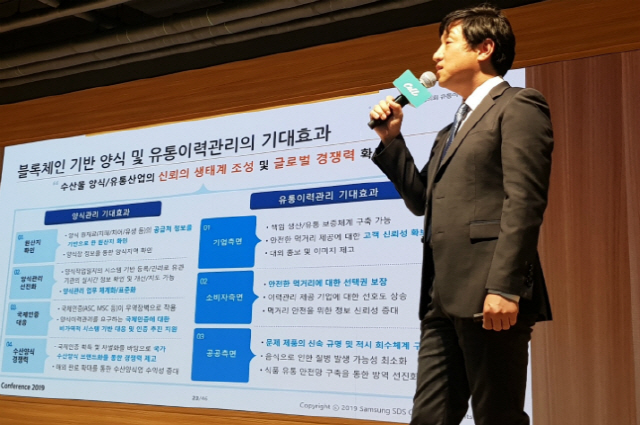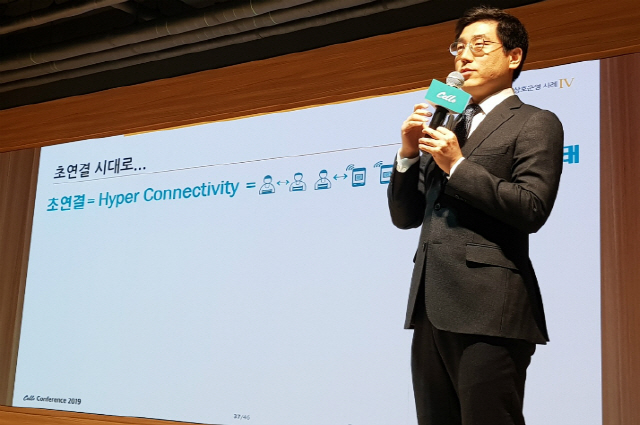
“Supply chain” management is counted among promising fields where blockchain technology can be used well. That’s because it’s possible to verify supply processes transparently with blockchain technology that can prevent data tampering. Such big distribution enterprises as Maersk and Walmart have already been using blockchain technology for their supply chain networks.
Korea’s Samsung SDS is also actively coming forward to launch its blockchain logistics business. In the “Cello Conference 2019” held at Samsung SDS’ campus in Pangyo, south of Seoul, Chung Tae-young, head of the company’s cello platform team, said, “Blockchain is not a panacea to solve all things but the supply chain, the core part of the logistics industry, needs blockchain essentially.”
These results include securing connectivity of various data concerning delivery schedule, customs clearance and so on; minimizing data double input; preventing data discrepancy; and preventing forgery of export documents through data tampering. “Banks that have been damaged because of document forgery as well as export firms and KCS will benefit a lot (from the service),” Chung said.
Also, there have been results from the business with ASK Export Council consisting of Korean seafood processing companies. Asked why his company had provided ASK Export Council with blockchain technology, Chung said, “As consumers become more conscious of sustainable seafood production and farming, there is a growing perception that all processes through which seafood is delivered to consumers must be transparent.” Samsung SDS has built a system in which buyers can confirm all history data, ranging from seafood warehousing to selection, packaging and shipment, through the QR (quick response) code. All data is stored on the blockchain network.

Toward that end, Samsung SDS introduced the “Deliver Platform,” a platform connectivity project. “We have a goal to let users exploit several logistics platforms on the Deliver Platform single-handedly,” Han said. The company also works on a project to ensure interoperability between Hyperledger Fabric and Ethereum. Han said, “The PoC is in progress so that information can be shared among different blockchains.”
In the conference, Prof. Song Sang-hwa of Incheon National University also emphasized that blockchain technology can be made better use in the logistics industry. “This year’s talking point in the logistics industry is digital switchover and therein lie blockchain and artificial engineering,” Prof. Song said. “Still, blockchain has to overcome technical limitations but will help build networks of companies with supply chains significantly.” /hyun@decenter.kr
- 사동석 기자
- sahds@dcenter.kr






















